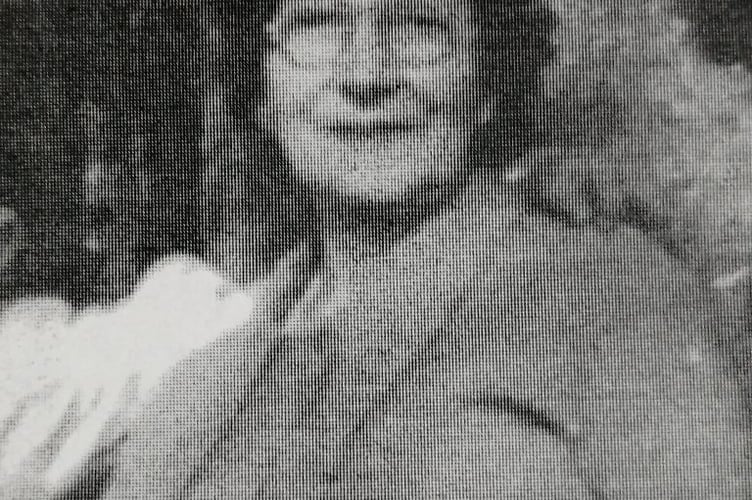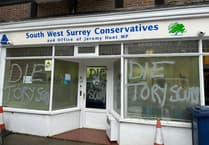WHEN Woking butcher Joseph Harvey died aged 49 in 1934, more than 70 floral tributes were sent by people including fellow traders, such was his popularity.
The funeral took place at Brookwood Cemetery, and the News & Mail reported: “The fact that a large number of wreathes were placed on the grave was eloquent testimony to the esteem in which Mr Harvey was held.”
Reader Jean Harvey, who has sent these details and photos, was born above her grandfather Joseph’s, and then her father’s, shop at 153 Goldsworth Road, Woking. Jean does not have any photos of the shop, or a dairy that was also in Goldsworth Road. She wonders if anyone does.
Joseph came to Woking as a boy – and after working for two Woking butchers, a Mr Bond and then a Mr Aikhurst, he opened his own butcher’s shop.
He married Alphonsine Hanri, who was born in Dinard, France.
Joseph fought in the First World War and in April 1917 was severely wounded and taken prisoner by the Germans.

A report in the News & Mail described his ordeal: “The Hun had been causing a great deal of trouble, so one morning after 4 o’clock the order was given to ‘go over the top’ and take the position.
“Pte Harvey was severely wounded in both legs with shrapnel while a bullet ploughed through his right arm and above the wrist and came out at the elbow. He lay in the open all day and 24 hours after being wounded a German crawled out and dragged him into a big dugout, where his wounds were roughly dressed.”
After two days, Joseph was “carried across the open country in a semi-unconscious condition. A broken-down wagon was found and he was placed on this and taken to Douai in Belgium, where he had to be immediately operated on to save his life. A week later he was removed to a hospital at Langensalza, where he remained until 18 May, when he was removed to another hospital at Giessen.”
At that hospital, he was placed on a list of wounded soldiers to be exchanged for German soldiers who had been captured by the Allies and who were also injured.
In January 1918 , Joseph was returned to Britain. Shortly before he was discharged from service, he was treated at the military hospital at Woking’s Inkerman Barracks.

While there, a reporter from the News & Mail interviewed Joseph, who said he was treated well in hospital as a prisoner and was looked after by French prisoners of war, but the food “was scarce and poor”.
He told the reporter: “You are living in luxury here. It will have to be a jolly sight worse before I complain about it, after what I have gone through. When we did get our parcels through the Red Cross, and I got mine regular while in hospital, the sentries used to offer us fabulous prizes for a small piece of dripping or a bit of soap.
“Since I came home everybody has been very kind to me and I wish to thank them, and especially the officials of the local pension committee, for I wasn’t here many hours before they had looked me up.”
Dying at the young age of 49 perhaps had something to do with Joseph’s ordeal during the conflict. His obituary gave details of his passing: “Mr Harvey was serving customers in his shop on Saturday morning when he had an attack of dizziness, and staggered into the hall, where he collapsed, and became unconscious. He died a few hours later.”
If you have some memories or old pictures relating to the Woking area, call David Rose on 01483 838960, or drop a line to the News & Mail.
David Rose is a local historian and writer who specialises in what he calls “the history within living memory” of people, places and events in the west Surrey area covering towns such as Woking and Guildford. He collects old photos and memorabilia relating to the area and the subject, and regularly gives illustrated local history talks to groups and societies. For enquiries and bookings please phone or email him at: [email protected]




